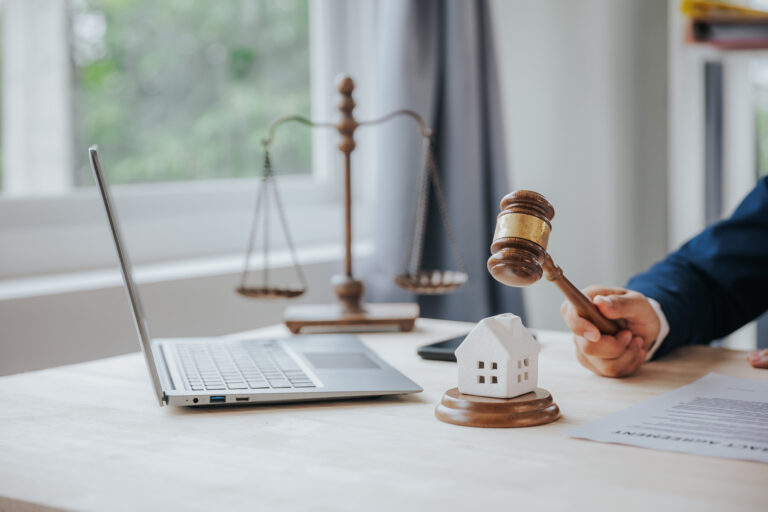Property Law Explained: Key Things You Should Know
Property law is a pivotal area of legal study that governs the ownership and usage of land and personal property. This comprehensive guide covers the fundamentals of property law, delving into its principles and addressing common issues faced by property owners. In an increasingly complex legal environment, having a foundational understanding of property law is essential for individuals and businesses alike.
Understanding the Basics of Property Law
Definition and Importance of Property Law
Property law refers to the body of law that governs various rights and obligations associated with owning and using property. It encompasses the rules and regulations that determine who can own property, how property can be used, and what happens when disputes arise over property rights. Understanding property law is crucial, as it impacts both personal and commercial interests.
The significance of property law cannot be overstated; it ensures order and security in property transactions, establishes legal standards for resolving disputes, and protects the rights of property owners. By defining ownership rights, property law facilitates economic stability and fosters trust within the marketplace. Furthermore, property law also plays a vital role in real estate development, guiding the processes involved in zoning, land use, and environmental regulations, which are essential for sustainable growth and community planning.
Types of Property: Real and Personal
Property can be categorized into two primary types: real property and personal property. Real property includes land and anything permanently attached to it, such as buildings and fixtures. It is typically characterized by its immobility and can be subject to various rights, such as easements or encumbrances. The complexities of real property law can also involve issues such as property taxes, landlord-tenant relationships, and the intricacies of title insurance, all of which are critical for ensuring the protection of property investments.
Personal property, by contrast, encompasses movable items not affixed to land, including vehicles, household goods, and finances. Personal property can further be subdivided into tangible personal property, like jewelry, and intangible personal property, such as stocks or trademarks. The distinction between these types of property is important for legal purposes, as different laws and regulations apply to each category, influencing how they can be bought, sold, or inherited. Additionally, the rise of digital assets, such as cryptocurrencies and online intellectual property, has introduced new dimensions to personal property law, requiring ongoing adaptation to address these emerging challenges.
The Role of Property Law in Society
Property law plays an essential role in maintaining societal structure by establishing systems of ownership and use. It aids in conflict resolution, providing clear guidelines for how disputes should be handled, whether through negotiation, mediation, or litigation. Additionally, property law serves to regulate interactions among individuals, businesses, and governments regarding property rights, making it a fundamental aspect of a stable society.
Moreover, property law reflects social values, addressing issues like equitable access to property, land use, and environmental rights. This adaptability allows property law to evolve alongside societal needs and technological advancements, thereby ensuring its continued relevance. For instance, contemporary property law increasingly incorporates principles of sustainability, promoting responsible land use and conservation efforts to balance development with environmental stewardship. As urbanization continues to rise, property law also faces the challenge of addressing housing shortages and affordability, prompting lawmakers to explore innovative solutions that align with the evolving dynamics of modern society.
Key Principles of Property Law
The Principle of Ownership
The principle of ownership acknowledges an individual’s or entity’s legal right to possess and control a property. Ownership is not merely about possession; it encompasses a bundle of rights, including the right to sell, lease, or exclude others from the property. This principle is foundational, as it defines the legal framework within which property transactions occur.
Property owners can exercise their rights within certain limits set by law, such as zoning regulations or homeowners’ association rules. Understanding the extent and limitations of ownership is vital for both personal and commercial property owners to avoid legal pitfalls. For instance, property owners must be aware of easements, which grant others the right to use a portion of their property for a specific purpose, such as utility access. These nuances can significantly impact the value and usability of the property, making it essential for owners to conduct thorough due diligence before making real estate decisions.
The Principle of Transfer of Property
The principle of transfer of property outlines how ownership rights are legally transferred from one party to another. This principle is crucial in real estate transactions, where the legal title of a property must be conveyed from the seller to the buyer through a formal process, typically involving contracts and legal documentation.
Transfers can be executed through various means: outright sale, inheritance, gifting, or leasing. Each method comes with its legal implications and requirements, meaning that proper understanding and navigational skills are essential for anyone involved in property transfers. For example, a sale often requires a title search to ensure there are no liens or encumbrances on the property, while gifting may necessitate tax considerations. Additionally, the use of escrow accounts in sales can provide security for both parties, ensuring that funds are only released when all conditions of the sale are met, thus safeguarding the interests of both the buyer and seller.
The Principle of Possession and Use
The principle of possession and use pertains to the rights of individuals to occupy and utilize property. While ownership grants rights over a property, possession includes the right to control and benefit from that property actively. This principle emphasizes that possession can exist independently of ownership; for example, tenants possess rental properties even though they do not own them.
Understanding the rights associated with possession is key in situations where conflicts may arise, such as landlord-tenant disputes, as it helps clarify the boundaries of legal use and occupation of the property. Moreover, the concept of adverse possession can complicate matters further, where a person may claim ownership of land under certain conditions, despite not holding the title. This principle underscores the importance of maintaining clear records and documentation regarding property use and occupancy, as it can influence both legal rights and responsibilities in property law. Additionally, the rights of possessors may vary significantly based on local laws, making it imperative for individuals to familiarize themselves with the specific regulations that govern their jurisdiction.

Property Rights and Responsibilities
Understanding Property Rights
Property rights are legal rights that dictate how property can be used by its owner or authorized users. These rights can be extensive, covering various aspects such as the right to build on land, the right to lease or rent, and the right to sell or transfer the property to others. Markedly, property rights are not absolute; they coexist with societal interests like zoning laws, environmental regulations, and public safety considerations. For instance, a property owner may have the right to develop their land, but local zoning regulations may restrict the type of development that can occur, ensuring that it aligns with community standards and environmental sustainability.
Awareness of property rights helps owners make informed decisions regarding development, investment, and overall management of their property assets. Engaging with qualified legal counsel can aid individuals in navigating complex rights and regulations effectively. Furthermore, understanding the nuances of property rights can empower owners to advocate for their interests, whether it involves negotiating leases, addressing disputes with neighbors, or participating in local government meetings where property-related issues are discussed. This knowledge fosters a sense of responsibility and stewardship, encouraging property owners to contribute positively to their communities.
Legal Responsibilities of Property Owners
With the ownership of property comes a series of legal responsibilities that owners must adhere to. These include maintaining the property in a safe and habitable condition, complying with local ordinances, and respecting the rights of neighbors and others. Property owners can be held liable for injuries or damages that occur on their property due to negligence or failure to meet safety standards. For example, if a property owner neglects to repair a broken staircase, they could face legal repercussions if a visitor is injured as a result. This highlights the importance of regular maintenance and proactive risk management in property ownership.
Additionally, property owners are expected to pay taxes on the land and property they own. Understanding these responsibilities is critical for avoiding legal complications and ensuring compliance with local, state, and federal laws. Beyond taxes, property owners may also be required to obtain permits for renovations or improvements, adhere to homeowners’ association (HOA) rules if applicable, and ensure that their property does not become a nuisance to the surrounding community. Engaging with local resources, such as city planning departments or community organizations, can provide valuable insights into these obligations and help property owners stay informed about changes in regulations that may affect their rights and responsibilities.
Common Legal Issues in Property Law
Property Disputes and How They Are Resolved
Property disputes are common and can arise from various issues, including boundary disagreements, landlord-tenant conflicts, or disputes over easements and property access. Resolving these disputes often requires legal intervention, where parties may seek mediation, arbitration, or litigation to settle their claims.
The resolution process typically begins with negotiation, where parties attempt to reach an agreement amicably. If negotiations fail, formal legal action may become necessary, making familiarization with the court system and procedural rules essential for affected parties.
Property Law and Inheritance Issues
Inheritance issues in property law often arise during the distribution of a deceased person’s property. Legal guidelines dictate how property is divided among heirs, and issues can stem from unclear wills, disputes among family members, or claims from outside parties.
Understanding the rules of intestate succession—where a person dies without a will—can assist potential heirs in asserting their rights. Legal counsel is often recommended in these situations to navigate the complexities of estate law and property distribution.

Property Law in Relation to Tenancy and Landlord Issues
The landlord-tenant relationship is governed by a complex array of laws and regulations designed to protect the rights of both parties. Common issues include lease agreements, security deposits, eviction processes, and maintenance responsibilities. Both landlords and tenants must be familiar with their legal rights and duties to prevent misunderstandings and disputes.
Disputes in this area often lead to legal action, especially regarding issues like lease violations or improper eviction. Tenants should be aware of their rights to a safe living environment, while landlords should familiarize themselves with the eviction process and other landlord obligations. Mediation can serve as a viable alternative to litigation, often leading to quicker and more amicable resolutions.
In conclusion, property law encompasses an array of vital topics for anyone involved in real estate, tenancy, or property rights. By understanding its fundamental principles, legal rights, and responsibilities, individuals can navigate the complexities of property ownership with greater confidence and clarity.
See Also: The best property lawyers: tips for finding expert legal help.







